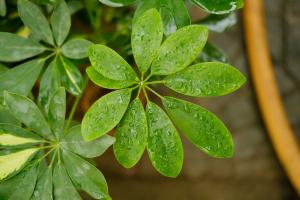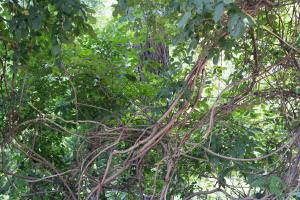Is Human Waste Good for Plants?
Human waste, also known as human excreta or sewage, is the waste matter that is eliminated from the human body. It contains both fecal matter and urine, which can be rich in nutrients that can benefit plants. However, the question remains, is human waste good for plants?
The Pros of Using Human Waste as Fertilizer
Human waste is rich in the nutrients that are essential for plant growth, such as nitrogen, phosphorus, and potassium. When properly treated, human waste can be turned into a form of fertilizer known as biosolids which can be used to fertilize crops and gardens.
Biosolids have been found to increase plant growth and improve soil quality. The nutrients in biosolids are released slowly and steadily over time, providing a consistent source of nutrients for plants. Biosolids are also a cheaper alternative to synthetic fertilizers, which can be expensive.
Additionally, using human waste as fertilizer is a more sustainable option than simply disposing of it. By recycling human waste, we can reduce the amount of waste that ends up in landfills, and reduce our reliance on synthetic fertilizers which can be harmful to the environment.
The Cons of Using Human Waste as Fertilizer
Despite the benefits of using human waste as fertilizer, there are also some downsides to consider. One major concern is the risk of spreading diseases. Human excreta can contain harmful pathogens such as bacteria and viruses which can be transmitted to crops and humans if the waste is not properly treated.
Another concern is the presence of heavy metals and other contaminants in human waste. These contaminants can build up in the soil over time and may be harmful to plants and humans if they are present in large amounts.
Finally, the use of biosolids as fertilizer may be met with resistance from the public. Many people may be uncomfortable with the idea of using human waste as fertilizer, and it may be difficult to convince them otherwise.
The Future of Human Waste as Fertilizer
The use of human waste as fertilizer is not a new idea, but it is gaining more attention as the world becomes more focused on sustainability and reducing waste. As technology advances, we are finding new and better ways to treat human waste and turn it into a valuable resource.
For example, some companies are developing systems that can convert human waste into a safe and nutrient-rich fertilizer in a matter of hours. These systems use heat and pressure to break down the waste into a form that can be safely used as fertilizer.
Additionally, there are efforts to educate the public about the benefits of using biosolids as fertilizer. By raising awareness about the advantages of using human waste as fertilizer, we can hopefully overcome the stigma that is associated with it.
Conclusion
In conclusion, human waste can be a valuable resource for plants when properly treated and turned into biosolids. This can benefit both the environment and agriculture by reducing waste and providing a sustainable source of nutrients for our crops. However, precautions must be taken to ensure that human excreta is treated properly to avoid the spread of disease and the buildup of contaminants in the soil. Overall, the use of human waste as fertilizer is a promising solution to some of the problems we face in our society today.

 how many times do yo...
how many times do yo... how many planted tre...
how many planted tre... how many pine trees ...
how many pine trees ... how many pecan trees...
how many pecan trees... how many plants comp...
how many plants comp... how many plants can ...
how many plants can ... how many plants and ...
how many plants and ... how many pepper plan...
how many pepper plan...





























